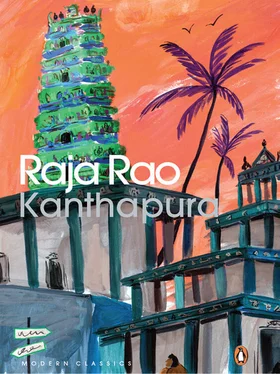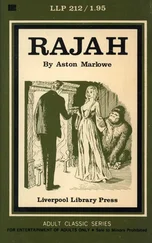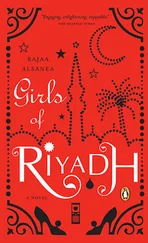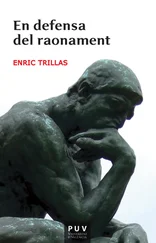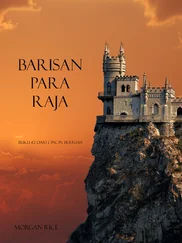The Brahmin street started just on the opposite side, and my own house was the first on the right.
Between my house and Subba Chetty’s shop on the Karwar road was the little Kanthapurishwari’s temple. It was on the Main street promontory, as we called it, and became the centre of our life. In fact it did not exist more than three years ago, and to tell you the truth, that’s where all the trouble began. Corner-house Narsamma’s son, Moorthy — our Moorthy as we always called him — was going through our backyard one day and, seeing a half-sunk linga, said, ‘Why not unearth it and wash it and consecrate it?’ ‘Why not!’ said we all, and as it was the holidays and all the city boys were in the village, they began to put up a little mud wall and a tile roof to protect the god. He was so big and fine and brilliant, I tell you, and our Bhatta duly performed the consecration ceremony. And as Rangamma said she would pay for a milk and banana libation and a dinner, we had a grand feast. Then came Postmaster Suryanarayana and said, ‘Brother, why not start a Sankara-jayanthi? I have the texts. We shall read the Sankara-Vijaya every day and somebody will offer a dinner for each day of the month.’ ‘Let the first be mine,’ said Bhatta. ‘The second mine,’ said Agent Nanjundia. ‘The third must be mine,’ insisted Pandit Venkateshia. ‘And the fourth and the fifth are mine,’ said Rangamma. ‘And if there is no one coming forward for the other days, let it always be mine,’ she said. Good, dear Rangamma! She had enough money to do it, and she was alone. And so the Sankara-jayanthi was started that very day.
It was old Ramakrishnayya, the very learned father of Rangamma, that said he would read out the Sankara-Vijaya day after day. And we all cried out, ‘May the Goddess bless him,’ for there was none more serene and deep-voiced than he. We always went to discuss Vedanta with him in the afternoons after the vessels were washed and the children had gone to school. And now we gathered at the Iswara’s temple on the promontory, instead of on Rangamma’s veranda. How grand the Sankara-jayanthi was! Old Ramakrishnayya read chapter after chapter with such a calm, bell-metal voice, and we all listened with our sari-fringes wet with tears. Then they began to lay leaves for dinner. And one boy came and said, ‘I shall serve, Aunt!’ And another came and said, ‘Can I serve paysam, Aunt?’ And another came and said, ‘I shall serve rice, Aunt,’ and this way and that we had quite a marriage army and they served like veritable princes. Then, when we had eaten and had washed our hands, the younger women sang, and we discussed the mayavada, and after that we went home. We hastily pushed rice on to the leaves of the young and came back for the evening prayers. There used to be bhajan. Trumpet Lingayya with his silver trumpet was always there, and once the music was over, we stayed till the camphor was lit, and throwing a last glance at the god, we went home to sleep, with the god’s face framed within our eyes. It was beautiful, I tell you — day after day we spent as though the whole village was having a marriage party.
Then sometimes there used to be Harikathas. Our Sastri is also a poet. You know, the Maharaja of Mysore had already honoured him with a palace shawl, and Sastri had just sent His Highness an epic on the sojourn of Rama and Sita in the hill country. They said he would soon be honoured with a permanent place in the court. And he is a fine singer, too. But he is an even grander Harikatha-man. When he stood up with the bells at his ankles and the cymbals in his hands, how true and near and brilliant the god-world seemed to us. And never has anyone made a grander Harikatha on Parvati’s winning of Siva. He had poetry on his tongue, sister. And he could keep us sitting for hours together. And how we regretted the evening the Sankara-jayanthi was over. The air looked empty.
But by Kenchamma’s grace it did not end there. The next morning Moorthy comes to us and says, ‘Aunt, what do you think of having the Rama festival, the Krishna festival, the Ganesh festival? We shall have a month’s bhajan every time and we shall keep the party going.’
‘Of course, my son,’ say we, ‘and we shall always manage each to give a banana libation if nothing else.’
‘But,’ says he, ‘to have everything performed regularly we need some money, Aunt.’
‘Money!’
It made us think twice before we answered, ‘And how much money would you need, my son? But, if it’s camphor, I’ll give it. If it’s coconut, I’ll give it. If it’s sugar candy. ’
‘No, Aunt,’ says Moorthy, ‘it’s not like that. You see, Aunt, while I was in Karwar we had Rama’s festival and Ganapati’s festival, and we had evening after evening of finest music and Harikatha and gaslight processions. Everybody paid a four-anna bit and we had so much money that we could get the best Harikatha -men like Belur Narahari Sastri, Vidwan Chandrasekharayya. ’
‘Do you think they’ll come here?’ say I.
‘Of course, Aunt. And what do you think: pay them ten rupees and give them their cart fare and railway fare and that’ll do. They don’t ask for palanquins and howdahs. And we shall have Harikathas such as no one has ever heard or seen in Kanthapura.’
‘All right, my son. And how should we pay?’
We know Moorthy had been to the city and he knew of things we did not know. And yet he was as honest as an elephant. ‘One rupee, Aunt. Just one rupee. And if there is some money left, we shall always use it for holy work. You understand, Aunt? That is what we did in Karwar.’
‘Yes,’ say I, though a rupee was a lot to me. I have seven acres of wet land and twelve acres of dry land and they yield just enough for my Seenu and me to have our three meals a day. A rupee! It was a twenty-fifth of my revenue, and tell me, when did we ever pay it in time? But the rupee is for the gods. And it is Moorthy that asks for it. We always bless him.
So Moorthy goes from house to house, and from younger brother to elder brother, and from elder brother to the grandfather himself, and — what do you think? — he even goes to the Potters’ quarter and the Weavers’ quarter and the Sudra quarter, and I closed my ears when I heard he went to the Pariah quarter. We said to ourselves, he is one of these Gandhi-men, who say there is neither caste nor clan nor family, and yet they pray like us and they live like us. Only they say, too, one should not marry early, one should allow widows to take husbands and a Brahmin might marry a pariah and a pariah a Brahmin. Well, well, let them say it, how does it affect us? We shall be dead before the world is polluted. We shall have closed our eyes.
So, he goes, Moorthy, from house to house, from householder to householder, and — what do you think? — he gathers a hundred and forty-seven rupees. Everybody says, ‘Take it, my son.’ And Rangamma gives him a ten-rupee note and says, ‘Last harvest, when Ramayya’s Chennayya had paid back his mortgage loan, I asked, “What shall I do with this money?” and I sent a hundred rupees to a Brahmin orphanage in Karwar. Well, money spent there or here, it is all the same to me.’ And then Agent Nanjundia pays two rupees, his son the teacher pays one, and his sister’s husband pays two, three or four, I don’t quite remember, and so goes Moorthy gathering money in his ascetic’s bowl. And what a grand festival we had the following Ganesh-jayanthi. There were reading parties and camphor ceremonies every evening, and our young men even performed a drum and sitar bhajan. And it was on one of those evenings that they had invited Jayaramachar — you know Jayaramachar, the famous Harikatha-man? They say he had done Harikatha even before the Mahatma. And a funny Harikatha -man he is too, sister.
Читать дальше
